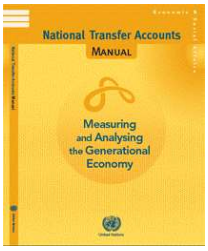Intergenerational transfers and ageing in Spain, an analysis from 1970 to the present

The so-called Welfare State, that is, the set of public policies aimed at guaranteeing a minimum standard of living for citizens, is undoubtedly one of the great social achievements of the last century. Although it is true that the origin of the Welfare State lies in the need to redistribute resources among the population in order to seek a minimum of social equity, the truth is that, in practice, it has ended up deriving mainly in a system of transfers between different generations: people of working age, who have the capacity to work and generate resources, are the ones who mainly finance with their taxes social policies, primarily aimed at older people (health, retirement pensions) and to a lesser extent towards younger people (education). This role of the public sector as a vehicle for transferring resources from those who work and earn income to those who do not, resembles extraordinarily the role of families in traditional societies.
Very probably, in fact, what has been happening gradually in advanced societies as the Welfare State developed, is that the states have been replacing to some extent that role of the family, especially in terms of care and attention to the needs of the elderly. In some way, attention to the needs of older people has been socialized, in the sense that it is the whole community, and not just the family, that should be in charge. In the case of children, on the other hand, socialization has been much more reduced, and is almost exclusively limited to education in many countries such as Spain, although others have developed important systems of protection for the family and children, such as France or the Scandinavian countries.
The aim of this project is to carry out a historical analysis of public welfare policies in Spain, which will allow us to understand their current situation and characteristics. Given the special political circumstances, Spain developed and consolidated its Welfare State later than the other European countries of reference. Although there have been precedents for social security since the beginning of the 20th century, the General Law on Social Security, which introduced a generalised pension system and the right to health care for workers and their families, did not enter into force until 1967. For its part, the General Education Act, which established free compulsory education up to the age of 14, was adopted in 1970.
In order to study in detail the historical evolution of intergenerational transfers, we will estimate the so-called Generational Transfer Accounts (NTAs) corresponding to the period 1970-2000. NTAs are estimates that, consistent with National Accounts, provide valuable information on how resources move among individuals of different ages in a given period, i.e., they allow us to see what intergenerational transfers are like. In particular, NTAs provide profiles by age of consumption (both private and public) and of labour income, as well as of many other magnitudes such as public transfers (broken down by types of both income and expenditure), private transfers and reallocation of assets.
Its estimation implies a detailed work of exploitation of microeconomic data, as well as its subsequent adjustment with the aggregates of the National Accounts. This is a methodology that emerged in the early 2000s and is now applied to more than 40 countries, in an international project led by the Universities of Hawaii and Berkeley.
In 2013, the methodology was compiled and published in a manual by the United Nations Population Division. Spain joined the NTA estimation project in 2009, with a team involving several of the researchers collaborating on this project. At the moment we have NTA for Spain for the years 2000-2012, from which we have carried out different analyses published in prestigious academic journals.

Manual of the National Transfer Accounts Methodology published in 2013 by the United Nations Population Division.
This project aims to estimate the NTA in Spain since 1970, using different available microeconomic databases. The results will allow us to analyse how the Welfare State has developed in our country, whether and to what extent it has replaced the family as the main vehicle for intergenerational transfers and, most importantly, how it is being affected by the profound change in the age structure of the population faced by developed countries. The objective is to be able to draw economic policy conclusions that will allow us to design the necessary reforms of our Welfare State to face the aging process, making it sustainable, sufficient, and equitable.







